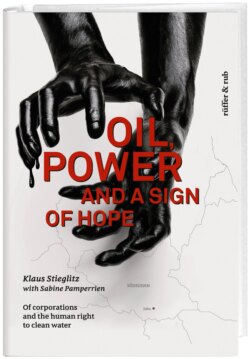Читать книгу Oil, power and a sign of hope - Klaus Stieglitz - Страница 6
На сайте Литреса книга снята с продажи.
ОглавлениеAt the beginning of June 1994, Reimund Reubelt, staff member of Sign of Hope, traveled to Southern Sudan, which was being racked by a civil war in those days. He arrived in a small airplane. It was full of assistance supplies that Reimund had procured in Kenya. The airplane’s pilot was nervous. This was because he didn’t know — the rebels or the government’s forces — who controlled the airstrip at which they were going to land. He said: “If people start running at us, that’s a bad sign. We will have to immediately take off again.” The tall and haggard people waiting at the airfield approached the airplane in a slow and dignified pace.
The event, which took place more than 20 years ago, marked the beginning of Sign of Hope’s work in the country, in which more than 75 % of the people cannot read or write, and in which more than half live below the poverty level.
At the end of 2007, problems with drinking water were brought to the attention of Sign of Hope. The German organization was told of the contamination being found in the water available for drinking in certain regions of Southern Sudan. The initial tests made of the water confirmed the assumption that this contamination stemmed from the extraction of oil. Sign of Hope commissioned the conducting of a comprehensive, scientific study.
On March 5th, the “AFP” publishes an article in English on the analyses of samples of hairs collected by Sign of Hope, and on their dramatic findings, and how they relate to South Sudan’s oil industry. This article is taken up and spread by international media.
And the story goes on.
